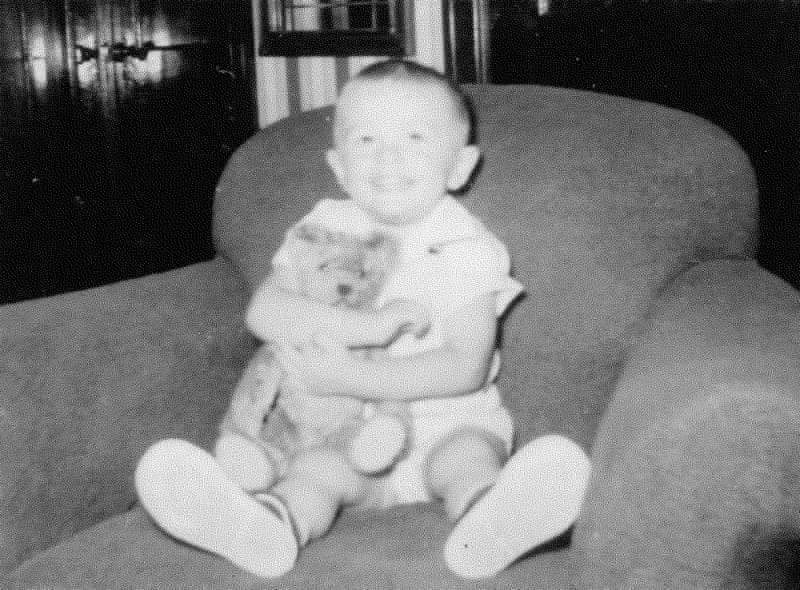“Church doors were open but congregations were missing yesterday as a city health department order went into effect banning all public gatherings,” The Asheville Citizen reported on Aug. 2, 1948.
The mandate came in response to an ongoing polio outbreak. Over the previous six weeks, Asheville and Buncombe County had reported 81 cases among its youths — a staggering number considering the annual statewide average in prior years ranged between 80 and 100 cases total.
Some business owners, including Herbert D. Miles, president of the George Vanderbilt Hotel, openly criticized and questioned the order. Meanwhile, a handful of church leaders took umbrage to the mandate’s language, which lumped religious services in with baseball games and theatrical performances as “unnecessary” gatherings.
Nevertheless, residents appear to have followed the order, which continued through Aug. 11. Upon reopening, The Asheville Citizen praised the community’s cooperative spirit. “The health of the population can never be sacrificed to any other interest,” the Aug. 12 editorial declared. “And it was not sacrificed.”
Restrictions, however, remained in place for Buncombe County youths until Aug. 21. Over the 10-day span, children 16 years and younger were forbidden from attending all public gatherings, though neighborhood socials appeared to be fair game, both during and before the extension.
Case in point: On Aug. 6, amid the citywide shutdown, The Asheville Citizen featured a write-up on friends Billy Morrison and Roger Sumner, publishers of the new “try-weekly” paper, Sense and Nonsense. “There is no delivery services,” The Asheville Citizen reported of the publication. “The paper is sold at a cash-and-pick-up news stand on the Sumner front porch. Circulation is boosted by phone calls to neighbors and relatives[.]”
According to the article, the boys launched the paper — replete with neighborhood news, recipes, personal columns, jokes and polio health hints — as a way to raise funds for the Asheville Orthopedic Home, a local medical facility dedicated to treating a majority of the region’s polio cases.
Similar fundraisers continued throughout August and September. Frank Barber, chair of the Asheville Orthopedic finance committee, praised the efforts in an Aug. 22 interview with The Asheville Citizen. He also shared excerpts from supporters’ letters.
One such missive described “a little circus” held on Lorraine Avenue in North Asheville. “Our parents and neighbors came to it and we made $4.50,” the letter stated. “[T]hen we cut a lawn for 50 cents making a total of $5 which we are sending to you for the Orthopedic hospital to be used for the children who have polio.”
A few days later, on Aug. 26, the paper featured an article on the Polio Prevention Club, another ad hoc youth organization. The group was raising funds to purchase radios and teddy bears for patients at the Asheville Orthopedic Home. They called on all their peers “to earn money for the fund.”
The challenge was readily met. On Sept. 3, The Asheville Citizen reported that a group of young people in Oteen staged a performance of Hamlet, albeit “slightly cut and embellished with modern rather than Elizabethan slang.” The event raised $21.75.
By month’s end, the Sunday edition of the Asheville Citizen-Times wrote that an estimated 150 members of the Polio Prevention Club had contributed $206 and 20 teddy bears to the Asheville Orthopedic Home.
“These little folks have been touched by the appeal of the ones who are stricken and they genuinely want to do something by their own efforts to help,” Barber told The Asheville Citizen in his Aug. 22, 1948 interview. “That of course is the finest type of citizenship and character building and is the sort of thing that can be made to carry these little folks far in the years to come.”
Editor’s note: This is the final segment of our 1948 polio series. Previous articles can be found at avl.mx/760, avl.mx/77k, avl.mx/7cj and avl.mx/7ck. Punctuation and spelling are preserved from the original documents.




“Nevertheless, residents appear to have followed the order, which continued through Aug. 11. Upon reopening, The Asheville Citizen praised the community’s cooperative spirit. “The health of the population can never be sacrificed to any other interest,” the Aug. 12 editorial declared. “And it was not sacrificed.””
Ah, those were the days, before “I have a God-given right to infect others including my own family, friends and neighbors with a deadly disease just because I’m stupid” became the mantra of one of the two major political parties.